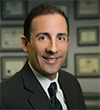 Adam J Krohn / Posted: 2014-02-05 2:28 pm
Adam J Krohn / Posted: 2014-02-05 2:28 pmA close relative of yours has recently died. You and your family are grieving and now debt collectors are calling asking you family to pay the debts of your deceased loved one. However, as a rule, the debts of the decedent are not the responsibility of the family but of the decedent’s estate.
Family members are usually not responsible for paying debts of a deceased relative from their own assets according to the Federal Trade Commission (FTC). Additionally, all consumers, including family members of deceased consumers, are protected by the Fair Debt Collection Practices Act (FDCPA). The FDCPA prohibits debt collectors from using unfair, deceptive, or abusive practices when they try to collect on a debt, including those of your deceased loved ones.
Once a debtor dies their debts do not go away.
Once a person dies, the debts owed by the decedent become the responsibility of that person’s estate. If the estate does not have enough money to cover all the decedent’s debts then the debt will typically go unpaid. However, there are some exceptions to this rule. A family member of the decedent may be responsible for the debt if s/he:
Any family member who has questions about whether they are legally obligated to pay the debts of a deceased person from their own assets should talk to an attorney.
Is there a person has the authority to pay the debt of the deceased person out of his or her own assets?
If the decedent had a Will, the person named in the Will responsible for settling the decedent’s affairs is called an executor. However, if the decedent did not execute a Will, the court can appoint an administrator, personal representative, or universal successor, giving them the authority to settle the estate’s affairs.
Who can debt collector’s contact regarding the debts of a deceased person?
According to the FDCPA, debt collectors can contact and discuss the debts of a deceased person with the person’s spouse, parent(s) (if a minor child is the deceased), guardian, executor, or administered. Debt collectors are also authorized by the FTC to contact other persons who are authorized to pay the decedents debts with assets from the deceased’s estate. However, they may not discuss the debts with any other person.
If debt collectors contact a third party, not authorized to pay the decedent’s debts, under the FDCPA the debt collector can only do so to obtain the name, address, and telephone number of the decedent’s spouse, executor, administrator, or any other person who is authorized to pay the decedent’s debts. They can usually only contact a third party once to obtain the information. There is one main exception however, if the debt collector reasonably believes that the information obtained during the first communication was inaccurate or incomplete, and that the third party may have more accurate or complete information. During contact however, the debt collector cannot discuss the debt with the third party.
Can person’s authorized to pay the debt of a deceased person stop a debt collector from contacting them?
If an authorized person wishes for a debt collector to stop contacting them they must send a letter to the debt collector stating that they do not want the collector to contact them again. They should send the original by certified mail and request a return receipt to ensure that you have documentation that the debt collector received the letter and when. Once the collector has received the letter, he cannot contact you again unless it is to confirm that there will not be any further contact or that he or the creditor intends on taking action such as filing a lawsuit.
Our experienced attorneys here at Krohn and Moss Consumer Law Center have also provided many helpful resources regarding the TCPA and the FDCPA and how telephone debt collectors should act. We have been successfully representing those abused and taken advantage of by debt collectors for years, and have a long list of successful stories to share with you. We offer a FREE CASE REVIEW for you to assess whether we can assist you with your matter. Please do not hesitate to contact us toll free at 1-800-875-3666 or visit our website at http://www.krohnandmoss.com/.
Submit Your Details for Free Case Review